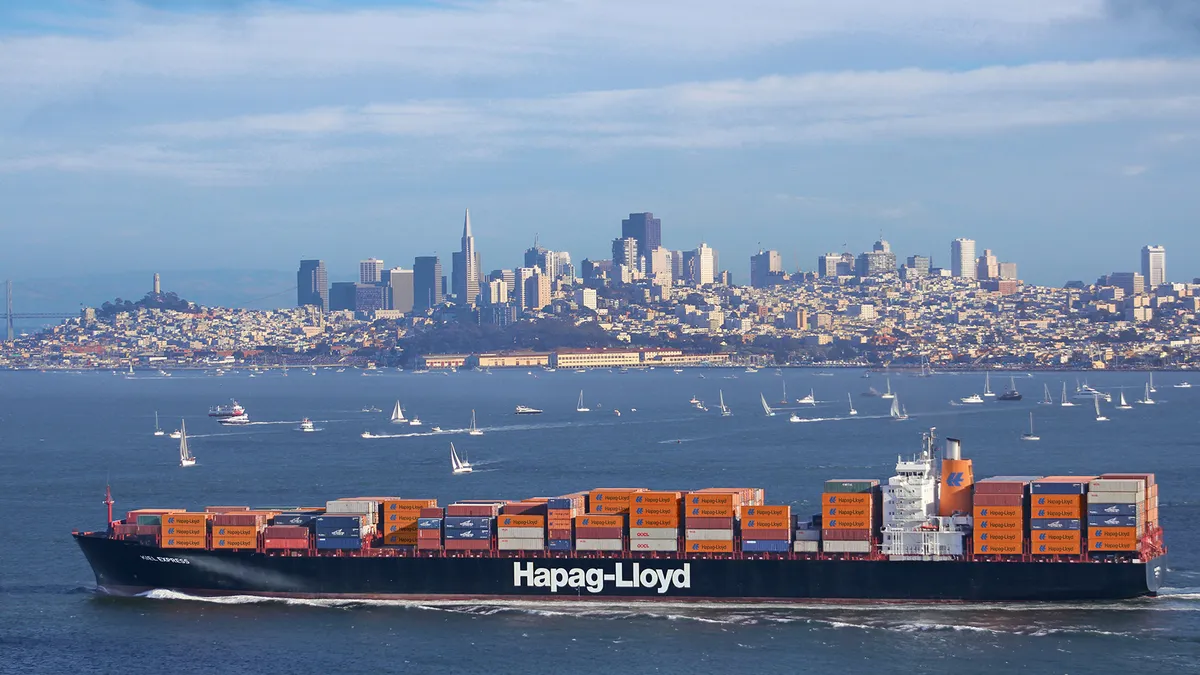Dive Brief:
- Maersk and Hapag-Lloyd announced new fuel charges meant to offset the carriers' transition to more expensive fuel required by International Maritime Organization sulfur regulations that take effect Jan. 1.
- Both companies said the new fees would take effect Dec. 1, according to press releases from the two carriers.
- "Switching from high-sulphur fuels to the new low-sulphur fuel will inevitably result in higher fuel prices in the short term. Volatility is also expected to increase, particularly during the transition period. Given these circumstances, we will implement the ITC (IMO2020 Transition Charge) to cope with the additional costs as well as to have a sustainable and transparent method of pricing our services for our customers," Hapag-Lloyd CEO Rolf Habben Jansen said in a statement.
Dive Insight:
Maersk's Environmental Fuel Fee was announced in September, but the shipping company informed customers of the tariff levels late last month, a spokesperson told Supply Chain Dive in an email. The surcharge covers all spot business and contracts that are three months or shorter, the company said.
The exact level of these fees is "being shared directly with the customers only," the spokesperson said.
Last year, Maersk announced a separate fee, the Bunker Adjustment Factor, which goes into effect Jan. 1 and covers longer-term contracts over three months.
The cost of high-sulfur fuel has been dropping in recent months as carriers make the transition to IMO 2020 compliant fuel, which has been expected to become more expensive as the transition takes place, according to Maersk's second-quarter report.
Maersk said its cash flow would be impacted in the third and fourth quarters of the year as it begins to stock up on compliant fuel, but it doesn't plan to start using any until late December, Maersk CFO Carolina Dybeck Happe said on the company's most recent earnings call.
Habben Jansen said in August he does not expect to have any issues when it comes to procuring compliant fuel.
ONE announced last year it will implement a new fuel surcharge starting on Jan. 1, 2020, saying it would "be valid till further notice."
The IMO 2020-compliant fuel is expected to be 50% more expensive than the fuel currently used by cargo ships, according to Drewry. A review by consulting firm AlixPartners concluded shipping lines would need "significantly higher" surcharges ranging from 33% to 40% depending on the route to offset the cost of the more expensive low sulfur fuel.
Last month, Drewry released a bunker adjustment factor indexing mechanism to help shippers better understand the fees.














